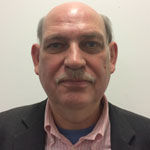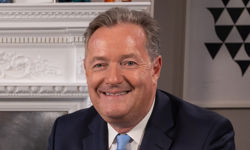
Fans of the 1970s TV detective Columbo will recall his habit of always asking one more question. He would never leave it at ‘goodbye’, but would always step back into the room to say to the increasingly frazzled guilty party, “just one more thing”.
What would follow would be a question about a seemingly innocuous detail, framed almost as an afterthought by the scruffy detective to the always immaculately turned out baddie, but which would inevitably turn out to be the key that unlocked the mystery.
Watergate journalist Bob Woodward was once asked what his formula was for getting to the bottom of things. His answer: “The approach is to talk to people, then go back, then go back again. Talk to more people. Get more questions. Look at the written record, look at the paper trail, follow the money, follow the things that are concrete. You have to go through the checklist of procedures.”
The habit of asking one more question is something Ed Walker, audience & content director (regionals) at Reach plc, encourages journalists to do. At the heart of being a good journalist is the ability to make contacts, build networks, ask questions and remember answers. And the confidence to ask that one extra question is the thing that often marks out the better journalists. Because you never know what you might unearth.
The American journalist Warren Berger, author of ‘The book of beautiful questions’ and ‘A more beautiful question’, says that good questioners have certain characteristics that are different from other people:
- They notice details about the world around them
- Listen intently to others and ask follow-up questions
- They go deeper and keep asking ‘why’ questions
- They stay with a question longer and keep working on it
The approach is to talk to people, then go back, then go back again.
Bob Woodward
Lessons for young journalists
In addition to his role as audience and content director, Ed Walker is also editor-in-chief of InYourArea and also leader in residence for journalism at the University of Central Lancashire.
As well as asking one more question, Ed believes young journalists should learn to:
- Be responsive: if a lead comes in, via Facebook for instance, then leap on it. Respond quickly to everything.
- Get involved; don’t be stand-offish: journalism isn’t only about reportage and commentary; it’s about offering solutions too.
- Look to make a difference because “the best days in journalism come when you see the difference you’ve made in a community”.
- Keep pushing the boundaries of your craft: learn new skills and never stop experimenting.
- Remember, stories are about people. A dry planning application will only come to life when you find out who’s submitted it and who it will affect.
- Don’t specialise too early. Whilst Ed acknowledges that some think differently, he sees a lot of value, certainly in the early stages of a career, in doing the general stuff and being a jack of all trades; pushing yourself to do some of the things you might not necessarily choose to do.
Sustainable future
The future of news media, Ed says, is about being relevant and we do that by getting close to our readers. A key part of this is in recruiting and training good journalists who can engage with people, ask the right questions and sniff out the good stories, but it’s also down to senior management ensuring that as an industry, we never stop experimenting, because the day we stop, we’re in trouble.
We operate in a highly competitive industry with lots of demands being made on our audience’s time, so we can never afford to be complacent. Like a Formula 1 car, he says, performance can always be improved with an extra tweak.
Reach’s commercial model for its news sites is ad-funded, with reader data playing an important part. The company aggregates all its local sites together into a single commercial offering, allowing small local audiences to be scaled up.
Part of this strategy is to increase its coverage of the country and, by the end of 2022, says Ed, every county in the UK will be serviced by a Reach ‘live’ site.
In April this year, Lloyd Embley, Reach’s editor-in-chief, said: “Over the past 18 months, we’ve significantly ramped up the number of new sites we’ve launched as part of our Live network, many in areas where we don't have established print titles.
“Thanks to our transformation of editorial operations last year and underpinned by our customer value strategy which ensures we build deeper relationships with our readers, we have created a sustainable model for digital-only local journalism.”
While some other regional publishers are exploring paywalls and subs models, Reach is showing that where the scale is sufficient and user data is meaningfully deployed, the ad funded model still has legs.
But whatever the revenue route to sustainability a news media organisation relies on, at its core is a team of journalists getting to the bottom of things, by asking lots and lots of searching questions.

You can hear Ed Walker being interviewed by James Evelegh on a recent episode of The InPublishing Podcast, which was sponsored by AdvantageCS, a leading global provider of subscription and membership management software.
This article was first published in InPublishing magazine. If you would like to be added to the free mailing list, please register here.












